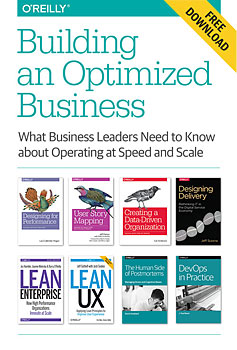- Matthew Effects in Reading (PDF) — Walberg, following Merton, has dubbed those educational sequences where early achievement spawns faster rates of subsequent achievement “Matthew effects,” after the Gospel according to Matthew: “For unto every one that hath shall be given, and he shall have abundance: but from him that hath not shall be taken away even that which he hath” (XXV:29) (via 2015 Troubling Trends and Possibilities in K-12)
- Real Time Dashboard for Office Plumbing (Flowing Data) — this is awesome.
- Working Below the API is a Dead End (Forbes) — Drivers are opting into a dichotomous workforce: the worker bees below the software layer have no opportunity for on-the-job training that advances their career, and compassionate social connections don’t pierce the software layer either. The skills they develop in driving are not an investment in their future. Once you introduce the software layer between ‘management’ (Uber’s full-time employees building the app and computer systems) and the human workers below the software layer (Uber’s drivers, Instacart’s delivery people), there’s no obvious path upwards. In fact, there’s a massive gap and no systems in place to bridge it. (via John Robb)
- The Real Robot Economy and the Bus Ticket Inspector (Guardian) — None of the cinematic worries about machines that take decisions about healthcare or military action are at play here. Hidden in these everyday, mundane interactions are different moral or ethical questions about the future of AI: if a job is affected but not taken over by a robot, how and when does the new system interact with a consumer? Is it ok to turn human social intelligence – managing a difficult customer – into a commodity? Is it ok that a decision lies with a handheld device, while the human is just a mouthpiece? Where “robots” is the usual shorthand for technology that replaces manual work. (via Dan Hill)
"complex systems" entries

Dave Zwieback on learning reviews and humans keeping pace with complex systems
O'Reilly Radar Podcast: Learning from both failure and success to make our systems more resilient.
Subscribe to the O’Reilly Radar Podcast to track the technologies and people that will shape our world in the years to come.
In this week’s Radar Podcast episode, I chat with Dave Zwieback, head of engineering at Next Big Sound and CTO of Lotus Outreach. Zwieback is the author of a new book, Beyond Blame: Learning from Failure and Success, that outlines an approach to make postmortems not only blameless, but to turn them into a productive learning process. We talk about his book, the framework for conducting a “learning review,” and how humans can keep pace with the growing complexity of the systems we’re building.
When you add scale to anything, it becomes sort of its own problem. Meaning, let’s say you have a single computer, right? The mean time to failure of the hard drive or the computer is actually fairly lengthy. When you have 10,000 of them or 10 million of them, you’re having tens if not hundreds of failures every single day. That certainly changes how you go about designing systems. Again, whenever I say systems, I also mean organizations. To me, they’re not really separate.
I spent a bunch of my time in fairly large-scale organizations, and I’ve witnessed and been part of a significant number of outages or issues. I’ve seen how dysfunctional organizations dealing with failure can be. By the way, when we mention failure, it’s important for us not to forget about success. All the things that we find in the default ways that people and organizations deal with failure, we find in the default ways that they deal with success. It’s just a mirror image of each other.
We can learn from both failures and success. If we’re only learning from failures, which is what the current practice of postmortem is focused on, then we’re missing … the other 99% of the time when they’re not failing. The practice of learning reviews allows for learning from both failures and successes.

From Industrialism to Post-Industrialism
Leveraging the power of emergence to balance flexibility with coherency.

Download
Building an Optimized Business
Download a free copy of Building an Optimized Business, a curated collection of chapters from the O’Reilly Web Operations and Performance library. This post is an excerpt by Jeff Sussna from Designing Delivery, one of the selections included in the curated collection.
In 1973, Daniel Bell published a book called “The Coming of Post-Industrial Society”. In it, he posited a seismic shift away from industrialism towards a new socioeconomic structure which he named ‘post-industrialism’. Bell identified four key transformations that he believed would characterize the emergence of post-industrial society:
- Service would replace products as the primary driver of economic activity
- Work would rely on knowledge and creativity rather than bureaucracy or manual labor
- Corporations, which had previously strived for stability and continuity, would discover change and innovation as their underlying purpose
- These three transformations would all depend on the pervasive infusion of computerization into business and daily life
If Bell’s description of the transition from industrialism to post-industrialism sounds eerily familiar, it should. We are just now living through its fruition. Every day we hear proclamations touting the arrival of the service economy. Service sector employment has outstripped product sector employment throughout the developed world. 1
Companies are recognizing the importance of the customer experience. Drinking coffee has become as much about the bar and the barista as about the coffee itself. Owning a car has become as much about having it serviced as about driving it. New disciplines such as service design are emerging that use design techniques to improve customer satisfaction throughout the service experience.


Four short links: 17 February 2015
Matthew Effects, Office Dashboards, Below the API, and Robot Economies

DevOps keeps it cool with ICE
How inclusivity, complexity, and empathy are shaping DevOps.

Over the next five years, three ideas will be central to DevOps: the need for the DevOps community to become more Inclusive; the realization that increasing Complexity of systems is the underlying reason for DevOps; and the critical role of Empathy in the growth and adoption of DevOps. Channeling John Willis, I’ll coin my own DevOps acronym, ICE, which is shorthand for Inclusivity, Complexity, Empathy.
Inclusivity
There is a major expansion of the DevOps community underway, and it’s taking DevOps far beyond its roots in agile systems administration at “unicorn” companies (e.g., Etsy or Netflix). For instance, a significant majority (80-90%) of participants at the Ghent conference were first-time attendees, and this was also the case for many of the devopsdays in 2014 (NYC, Chicago, Minneapolis, Pittsburgh, and others). Moreover, although areas outside development and operations were still underrepresented, there was a more even split between developers and operations folks than at previous events. It’s also not an accident that the DevOps Enterprise conference took place the week prior to the fifth anniversary devopsdays and included talks about the DevOps journeys at large “traditional” organizations like Blackboard, Disney, GE, Macy’s, Nordstrom, Raytheon, Target, UK.gov, US DHS, and many others.
The DevOps community has always been open and inclusive, and that’s one of the reasons why in the five years since the word “DevOps” was coined, no single, widely accepted definition or practice has emerged. The lack of definition is more of a blessing than a curse, as DevOps continues to be an open conversation about ways of making our organizations better. Within the DevOps community, old-time practitioners and “newbies” have much to learn from each other.
